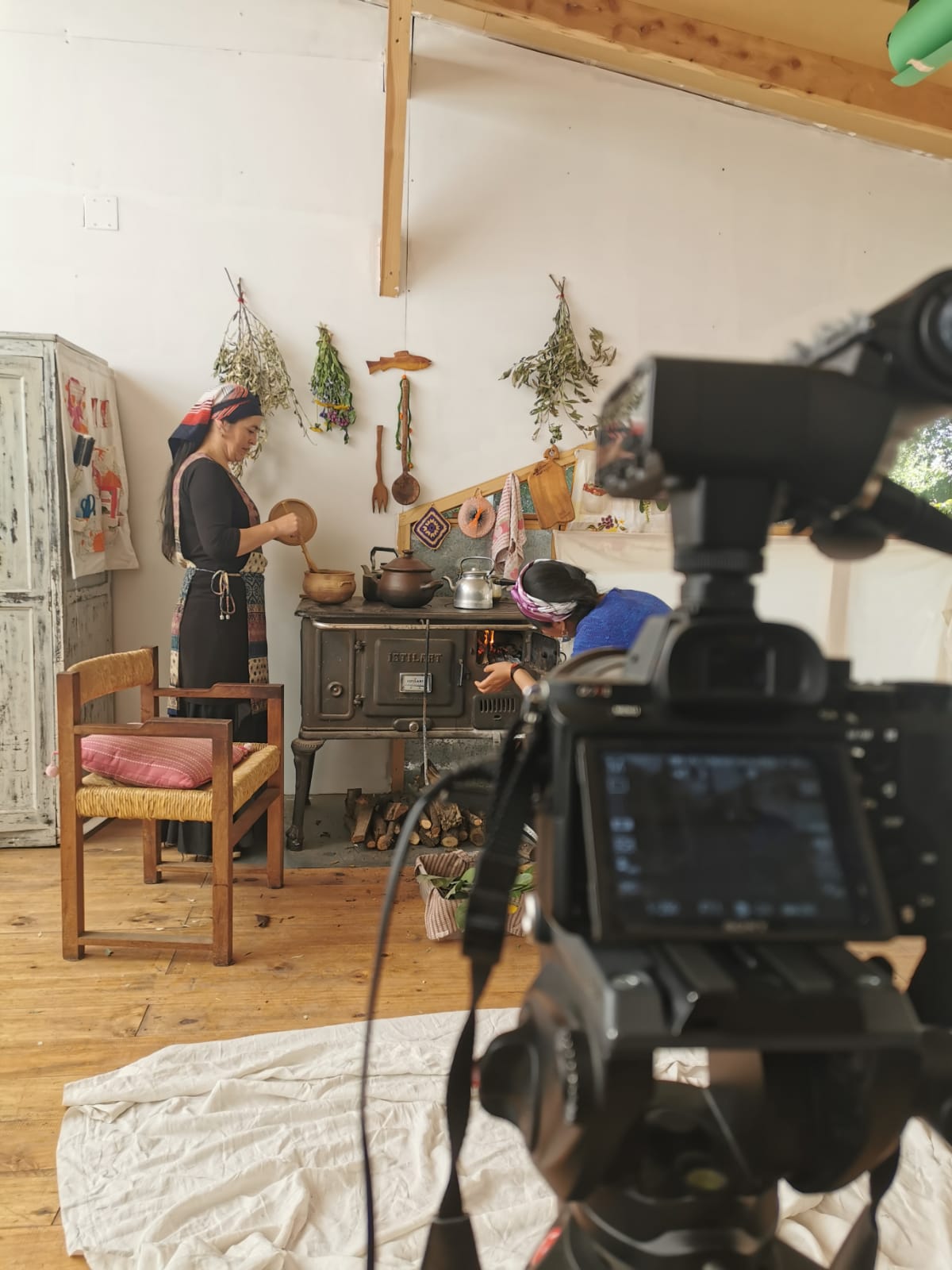Video Herbs
The scene deals with the current conflict that Mapuche people maintain with the Argentine state over their ancestral lands. It describes how, even after death, the Mapuche must continue fighting to return to a space that was once their own and is currently invaded.
The character of Don Martiniano condenses a series of similar stories of Mapuche leaders who fought under adverse conditions to reunite broken families and find a place to settle and live after the military occupation of the Indigenous territories in Patagonia in the late 19th century. Meanwhile, the female characters give an account of the Mapuche displacement to the city caused the marginalisation and stigmatisation of the families who survived the Army’s advance.
The play questions the racist foundations that justified the Mapuche people’s territorial dispossession. In poetic terms, the gestures, the scenic elements and the corporality represent the importance of pu lawen -Mapuche traditional medicine- in the reconnection of the displaced Mapuche with their territory and the re-establishment of a state of collective well-being.

Credits
Authorship and direction: Miriam Álvarez
Interpreters: Lorena Cañuqueo and Miriam Álvarez
Audio-visual production: Natalia Cano
Research: the scenes were created from the collaborative analysis of Alejandra Egido, Miriam Álvarez, Lorena Cañuqueo and Ana Vivaldi, part of the CARLA project Clandestine drama. The dramatic text was written within the dramatic writing workshop dictated by David Arancibia and part of Clandestine Dramaturgy. Clandestine Dramaturgy is a scenic and publishing research group.
